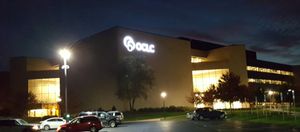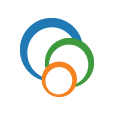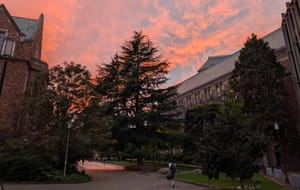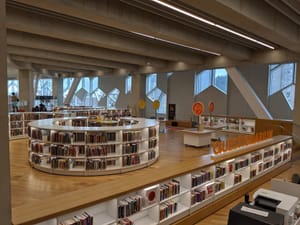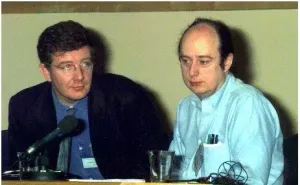Today was my last day at OCLC. After 21 years.
Much has changed over that time. And I have been very lucky to work for an organization which has helped influence that change. I have also been extraordinarily lucky to work with great colleagues and to have had the opportunity to interact with so many librarians around the world in different roles and contexts.
I have been fortunate to work for Skip Prichard, the current CEO, as well as for Jay Jordan, the previous CEO who recruited me, both of whom have supported me personally and also the important work in research and membership as an integral part of what OCLC does.
I thought I would share some reflections about my work and about OCLC. OCLC is a great place to work. There is a collegial culture, and people work there because they are committed to the mission.
In preparing this post, I realise that it complements the more reflective, personal remarks on career, on the challenges of the last few years, and on libraries generally, published here a while ago:

A personal perspective
I was initially recruited to oversee OCLC Research although my responsibilities have grown over the years. Within OCLC Research, it has been rewarding to be able to facilitate impactful work - generating knowledge, evidence and models which have helped to influence practice, to inform policy, and to increase confidence in planning.
I am proud of the work that my colleagues have done here, creating a real difference for academic and public libraries around the world. Rather than singling out particular initiatives or outputs, here is a brief overview with links to further details:
- User Research: Influential work on interaction with library services, on network behaviors, as well as deeper dives into researcher practice and expecations.
- Data science & metadata research: Early work with Dublin Core; development of VIAF and FAST contributing to entity-based metadata approaches; development of IIIF support in OCLC services; ArchiveGrid, WorldCat Identities and various prototypes.
- Libraries as community catalysts: The WebJunction learning platform and important projects on professional development, on library support in the Opioid epidemic, on the patterns of public support for library funding, and a range of projects on small and rural libraries. We were very pleased to step up to support the REALM project during the pandemic. The recent Reimagine Descriptive Worklows initiative lays out an important agenda.
- Research collections and support: Ongoing important work around special collections and archives, alongside definitional work on research data management and research information management. Much of this work has been done in deep engagement with Research Library Partnership colleagues.
- Library as enterprise: Exploration of how libraries are organized to get work done, in terms of service patterns, collaborative structures, and relationship to parent organizations. This is an area that deserves more attention.
- Collective collections: Leveraging OCLC's unique view of aggregated metadata to characterise patterns in library collecting, to provide an empirical basis for thinking about collaborative direction and structures, and to explore the composition of the scholarly and cultural record.
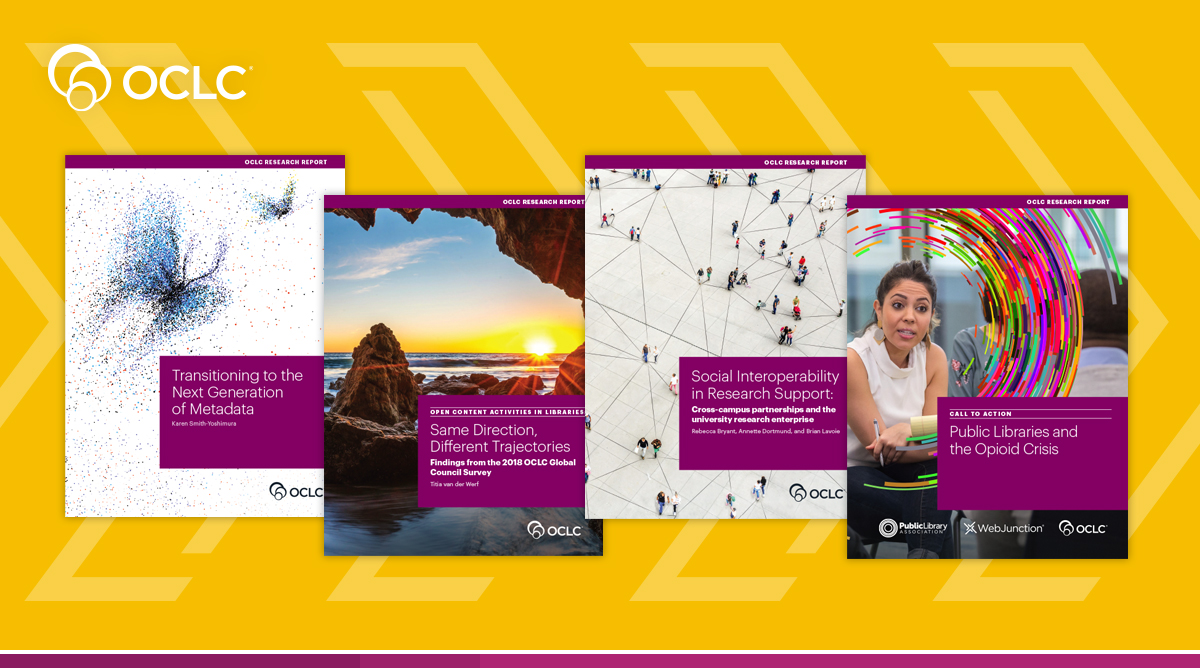
In my own work and thinking, I have worked directly with talented and dedicated colleagues throughout OCLC. One learns by the daily osmosis of interactions, as well as more deliberately. I really do feel lifted up - benefiting from broad expertise and experience. I will sorely miss that collegial personal network.
I have also loved the opportunities to interact with and learn from library colleagues from all types of libraries and from all parts of the world. This is very important to me: it is good to have that varied perspective and to see recurrent concerns, but also to see how services are manifest in very different environments. From this point of view I have enjoyed the opportunity to meet and talk with library colleagues in situ, at local events or in visits.
This is a major reason that I have been grateful to have had responsibility for Membership in recent years and to be able to work with my member relations colleagues. This group works with Councils and the governance structure of OCLC. The Chair of the Board is always a librarian, and I have enjoyed working with the many distinguished librarians who have served on the Board and Councils.
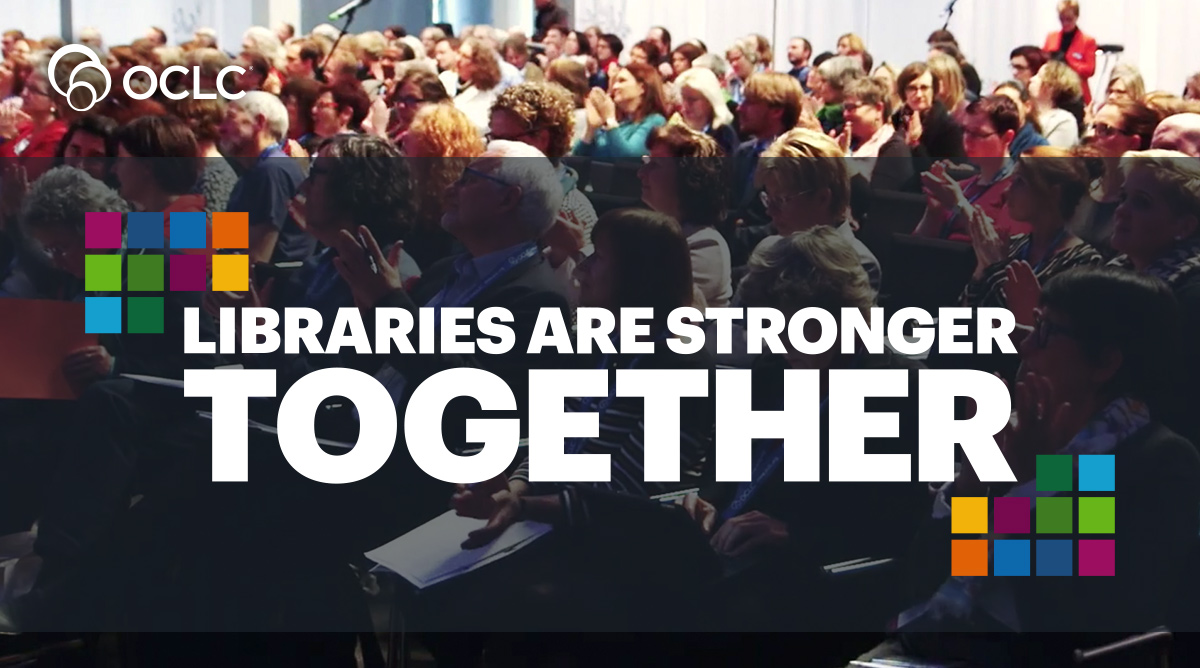
Finally, I have been pleased to be able to sustain my own writing and presenting, drawing on the wisdom of my colleagues and interactions with the library community (links at top of page!).
Thinking about OCLC
When asked about OCLC, I say that it allows libraries to collaborate at scale to get their work done. To enable this sharing, OCLC has built a network which connects thousands of libraries around the world. Of course, there is a stronger emphasis in the US and in those countries where there is greater use of OCLC services. Libraries mobilize this network to increase their impact and to do their work more efficiently … for resource sharing, for discovery, for shared cataloging and for new services like decision support.
Collaboration is underpinned by WorldCat and associated data resources, a unified view of collections from those libraries. Libraries reflect popular interest. They also reflect scholarly interest and have collected the published output of nations over time. Accordingly, library collections are a central place where world literature is stewarded and defined. As a result, WorldCat is probably the best approximation readily available to the published scholarly and cultural record. It is important shared infrastructure. Of course, this is not to overlook either the limitations in coverage of WorldCat itself, or in the collecting practices of libraries.
OCLC has also connected those libraries to hundreds of consumer sites (Google Books and Google, for example), content (publishers and metadata providers, for example) and systems providers, who also benefit from the operational scale of the network.
So, in this way, the OCLC network allows libraries to collaborate at scale in an unprecedented way. OCLC was a collaborative platform before we spoke about platforms. It supported library logistics before we spoke about logistics. Because of its broad and unparalleled reach it allows libraries of all types to participate in the benefits of the network it has created. And because of its governance model, it has no other purpose than to serve libraries. WorldCat itself is a unique resource, created by libraries, OCLC, and partners, all working together. WorldCat and related resources help to configure the library network OCLC supports.
Libraries, the public, scholars, and others in turn benefit from WorldCat and associated data resources, notably because of its ability to provide a high level collective perspective. It operates in a rich ecosystem of institutional and consortial or regional perspectives, in the US and elsewhere.
OCLC plays a critical and unique role in that ecosystem, and it evolves as the ecosystem evolves. Its role is multifaceted, given the variety of ways in which libraries and others use WorldCat and participate in the network it supports. Briefly, here are some examples ..
- An operational view of a large library network, which creates efficiencies in how libraries work together and with their partners.
- Network visibility – WorldCat and related data resources configures the network so that libraries, collections and services are visible and actionable in a collective way. The library network can also then be efficiently connected to Google Books, GoodReads or other services.
- Reduced interaction costs – greater efficiency in finding a record when wanted for cataloging, in locating a volume to request in interlibrary lending, or to search through the published documentary literature.
- Optimized library logistics – view of broad library network facilitates efficient resource sharing and calibration of individual collections against groups or the whole for offsite storage etc.
- A unified view of the published scholarly and cultural record stewarded within that network
- Scholars, genealogists, authors, enthusiasts, learners and others can readily search the published knowledge in WorldCat because it brings together the collections of thousands of libraries.
- Automated operations at scale to increase efficiencies within the library network
- Application of data science techniques for quality control and upgrade at the collective level – harmonization, clustering, deduplication, upgrade of data.
- Automated cataloging and collection level processing – supply of and automatic update of records for whole collections (for ebooks, for example, open access materials, or other collections). Working directly with publishers to register and update collections in WorldCat as content is purchased by libraries
Looking forward
It has been rewarding being a part of this evolution. I will miss the work and most of all I will miss colleagues and the broad library interaction.
Collections are changing. In recent years I have been talking about collective collections (managing collections above the individual library level), the facilitated collection (managing interactions with resources beyond the locally acquired collection), and the inside out collection (managing and disclosing unique institutional assets such as archives, research data and other scholarly material). Libraries are exploring controlled digital lending, prospective collection coordination, reparative resource description, and the varieties of open access. OCLC will be working with libraries to develop solutions as collections continue to evolve.
On the immediate horizon, I look forward to the refreshed Worldcat.org, to the progressive roll out of linked data approaches, and to further developments in how library visibility on the web can be enhanced. Further out, there is more work underway as OCLC partners with libraries to meet and anticipate developing needs.
Everybody at OCLC - the executive team and colleagues across the organization - is focused on helping libraries create a stronger future. I know that they will produce great things over the next few years. I also expect to be able to collaborate with my current colleagues in other ways and roles. And I certainly look forward to watching and cheering from the sidelines!
Note: The author was VP, Membership and Research, & Chief Strategist, OCLC, when this post was written.
Acknowledgement: Thank you to the colleagues who read this in draft and improved it with feedback.
Picture: The feature image is a slightly blurry night time shot of OCLC HQ in Dublin, Ohio. Taken by the author on his way home one evening.

